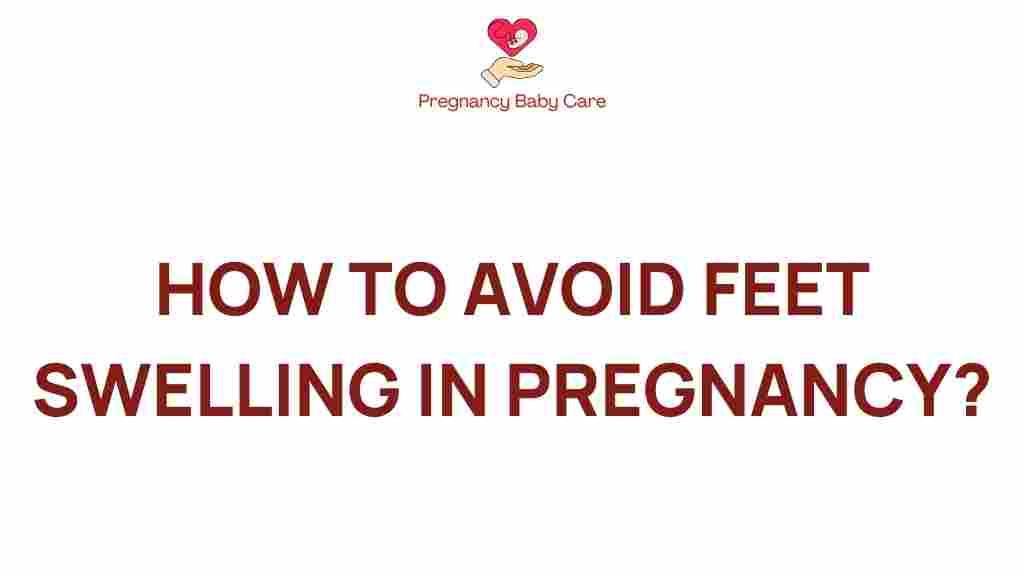Secrets to Preventing Feet Swelling During Pregnancy Revealed
Pregnancy is a beautiful journey filled with anticipation and joy, but it can also bring about some uncomfortable changes in the body. One of the common issues faced by many pregnant women is feet swelling, also known as edema. This condition can cause discomfort and may lead to worries about maternal health. Understanding how to manage and prevent feet swelling during pregnancy is crucial for ensuring your comfort and well-being. In this article, we will reveal effective strategies, lifestyle changes, and tips to help you navigate this challenge.
Understanding Feet Swelling During Pregnancy
Feet swelling during pregnancy is primarily caused by the body’s increased fluid retention and hormonal changes. As your body prepares to support the growing baby, it produces more blood and fluids, leading to swelling in the extremities. Additionally, the weight of the baby can put pressure on the blood vessels in the pelvis, affecting circulation. Understanding the causes of edema can help you take proactive measures to minimize its impact.
Common Causes of Edema in Pregnancy
Several factors contribute to feet swelling during pregnancy, including:
- Hormonal Changes: Increased levels of progesterone can relax blood vessels, leading to fluid leakage into surrounding tissues.
- Increased Blood Volume: A pregnant woman’s blood volume increases significantly, which can lead to fluid retention.
- Pressure from the Growing Uterus: As the uterus expands, it may compress the veins in the pelvis, impeding blood flow and causing swelling.
- Prolonged Standing or Sitting: Staying in one position for too long can exacerbate swelling in the feet and ankles.
Comfort Tips to Prevent Feet Swelling
To combat feet swelling during pregnancy, here are some practical comfort tips:
1. Stay Hydrated
It may seem counterintuitive, but drinking plenty of water can actually help reduce swelling. When your body is adequately hydrated, it can better manage fluid levels. Aim for at least 8-10 glasses of water a day. Consider these hydration tips:
- Carry a water bottle with you throughout the day.
- Infuse your water with fruits like lemon or cucumber for added flavor.
- Set reminders to drink regularly, especially if you often forget.
2. Make Lifestyle Changes
Implementing certain lifestyle changes can significantly reduce feet swelling:
- Elevate Your Feet: Whenever possible, elevate your feet to improve circulation. Use a cushion or pillow to prop them up while sitting or lying down.
- Wear Comfortable Shoes: Opt for supportive footwear that allows for some expansion. Avoid tight shoes or high heels.
- Avoid Prolonged Sitting or Standing: Take breaks to walk around and stretch your legs if you have a job that requires long periods of sitting or standing.
3. Incorporate Regular Exercise
Engaging in safe, moderate exercise can greatly benefit your overall health and help manage swelling:
- Walking: A simple walk can improve circulation and help prevent feet swelling.
- Swimming: Water supports your body weight, making swimming a great low-impact exercise during pregnancy.
- Leg Exercises: Simple leg exercises, such as ankle circles and calf raises, can stimulate blood flow.
4. Focus on Nutrition
A balanced diet plays a vital role in managing feet swelling. Here are some nutritional tips:
- Reduce Sodium Intake: High sodium levels can lead to fluid retention. Limit processed foods and opt for fresh, whole foods.
- Eat Potassium-Rich Foods: Foods like bananas, oranges, and spinach can help balance sodium levels and reduce swelling.
- Include Protein: Adequate protein intake can support your body’s needs during pregnancy and help with fluid balance.
Step-by-Step Process to Manage Feet Swelling
To effectively manage feet swelling during pregnancy, follow this step-by-step process:
Step 1: Monitor Your Symptoms
Keep track of when and where you experience swelling. This information can help you identify triggers and make necessary adjustments.
Step 2: Stay Active
Incorporate light exercises into your daily routine. Aim for at least 30 minutes of physical activity, such as walking or prenatal yoga.
Step 3: Prioritize Hydration
Set hydration goals and stick to them. Consider keeping a journal to track your water intake and ensure you are meeting your daily needs.
Step 4: Make Dietary Adjustments
Plan your meals to include plenty of fruits, vegetables, and whole grains. Reduce your sodium intake by cooking at home and avoiding processed foods.
Step 5: Use Compression Stockings
Compression stockings can provide additional support and improve circulation in your legs and feet. Speak with your healthcare provider about the best options for you.
Troubleshooting Tips for Persistent Swelling
If you experience persistent or severe feet swelling, consider these troubleshooting tips:
1. Consult Your Healthcare Provider
If swelling is sudden or accompanied by other symptoms such as headaches, visual disturbances, or abdominal pain, contact your healthcare provider immediately. These could be signs of a more serious condition, such as preeclampsia.
2. Adjust Your Routine
Evaluate your daily activities and make necessary changes. If you find yourself standing or sitting for long periods, try to incorporate more movement breaks.
3. Review Your Diet
Seek advice from a nutritionist or healthcare provider to ensure your diet supports your overall health and minimizes swelling.
4. Try Relaxation Techniques
Stress can contribute to physical discomfort. Consider incorporating yoga, meditation, or deep-breathing exercises into your daily routine to promote relaxation.
Conclusion
Feet swelling during pregnancy can be a common yet uncomfortable experience. By understanding the causes and implementing effective strategies, you can significantly reduce swelling and enhance your overall comfort. Remember to stay hydrated, make lifestyle changes, incorporate regular exercise, and focus on nutrition. If swelling becomes severe or concerning, always consult your healthcare provider for personalized advice. Embrace this beautiful journey of pregnancy with confidence and comfort!
For more information on maternal health and wellness during pregnancy, visit this resource. To explore additional tips and community support, check out our website.
This article is in the category Pregnancy and created by PregnancyBabyCare Team
